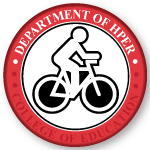Author ORCID Identifier
Document Type
Article
Publication Date
3-31-2020
Publication Title
Journal of Human Kinetics
Volume
72
First Page
101
Last Page
113
Abstract
Aspirin is a common nonsteroidal anti-inflammatory drug used to reduce fever, pain, and inflammation. However, aspirin's anti-inflammatory properties may also prevent increased levels of blood lactate dehydrogenase, vascular arterial stiffness and oxidative stress induced by high-intensity exercise. The purpose of this study was to investigate the effects of 4 weeks of aspirin supplementation on lactate dehydrogenase activity, lactate, arterial stiffness, and antioxidant capacity during high-intensity exercise in Taekwondo athletes. Participants were randomly divided into two groups: aspirin supplementation (n = 10) and placebo-control (n = 10). Blood levels of lactate dehydrogenase (LDH) enzyme activity and lactate were assessed to examine muscle damage and carotid-to-radial pulse wave velocity and the augmentation index were measured to examine arterial stiffness. Blood levels of superoxide dismutase, malondialdehyde, and glutathione peroxidase were assessed to determine antioxidant capacity and levels of oxidative stress. There were significant group × time interactions for enzyme activity of LDH (Δ-60 ± 24.36 U/L) and carotid-to-radial pulse wave velocity (Δ-1.33 ± 0.54 m/s), which significantly decreased (p < 0.05) following aspirin supplementation compared to placebo-control. Superoxide dismutase (Δ359 ± 110 U/gHb) and glutathione peroxidase (Δ28.2 ± 10.1 U/gHb) significantly decreased while malondialdehyde (0Δ3.0 ± 0.1 mmol/mL) significantly increased (p < 0.05) in the placebo-control group compared to the supplementation group. However, there were no changes in lactate concentration levels or augmentation index. These results reveal that low-dose aspirin supplementation would be a useful supplementation therapy to prevent high-intensity exercise training-induced increases in oxidative damage, inflammation, skeletal muscle fatigue, and arterial stiffness in elite Taekwondo athletes.
Recommended Citation
Lee, Sang-Ho; Pekas, Elizabeth J.; Lee, Seungyong; Headid, Ronald III; and Park, Song-young, "The Impact of Aspirin Intake on Lactate Dehydrogenase, Arterial Stiffness, and Oxidative Stress During High-Intensity Exercise: A Pilot Study" (2020). Health and Kinesiology Faculty Publications. 111.
https://digitalcommons.unomaha.edu/hperfacpub/111
Creative Commons License

This work is licensed under a Creative Commons Attribution 4.0 License.


Comments
This journal provides immediate open access to its content under the Creative Commons BY 4.0 license. Authors who publish with this journal retain all copyrights and agree to the terms of the above-mentioned CC BY 4.0 license